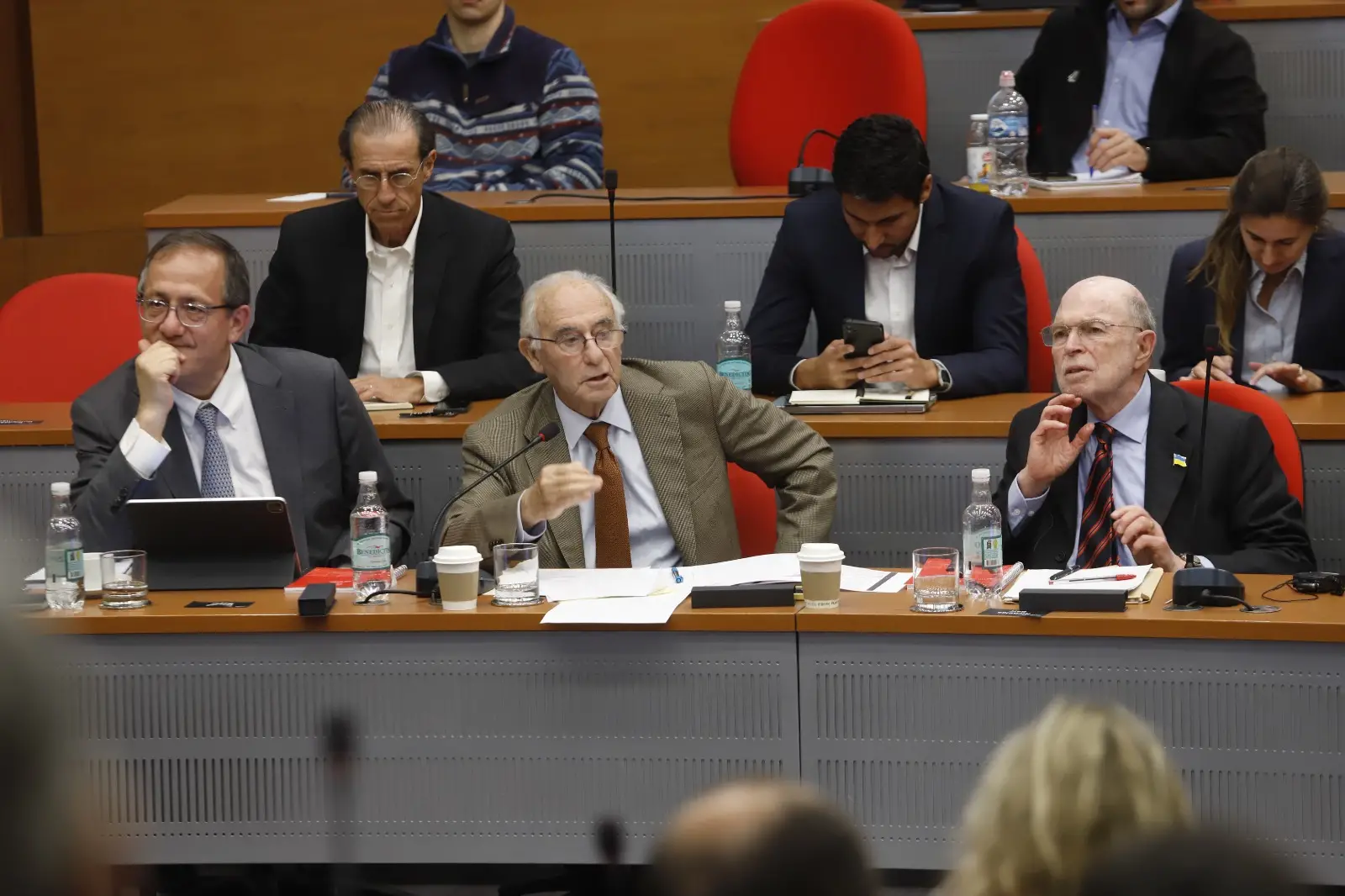
The Human Development Lab hosted the seminar “Challenges and Opportunities: Financiamiento Estudiantil en la Educación Superior,” bringing together leading education experts to share their perspectives on the current financing model and explore potential improvements to ensure equitable and sustainable access to higher education.
The panel featured Víctor Orellana, Undersecretary of Higher Education; Loreto Cox, Professor at the UC School of Government; Daniel Rodríguez, Executive Director of Acción Educar; Nicholas Barr, Professor of Economics at LSE; Harald Beyer, former Minister of Education and Professor at the UC School of Government; and Sergio Bitar, former Minister of Education. The discussion was moderated by Andrés Barrios, researcher at the Faculty of Economic and Business Sciences and Director of the Human Development Lab at UANDES.
In his opening remarks, José Antonio Guzmán, President of UANDES, underscored the importance of higher education in societal development: “We are at a critical juncture for higher education financing. A significant number of both public and private universities are beginning to face serious financial difficulties, which should be a cause for deep concern.” He also emphasized the need for an improved model: “There is a legitimate expectation to advance toward a high-quality system—one with greater capacity for innovation and research, capable of supporting the productive development our country requires.”
Held at the ESE Business School Building, the seminar brought together academics, researchers, and education professionals to discuss the necessity of a modernized financing model that ensures both access and quality while maintaining the system’s financial sustainability.
In a recent seminar on higher education financing, Undersecretary of Higher Education Víctor Orellana emphasized the need to modernize the current system. He stated, “Modernization must be comprehensive, encompassing academic aspects, human development, productive sustainability, as well as management and financing.”
Loreto Cox, professor at the UC School of Government, highlighted the urgency of shifting the focus in financing. She remarked, “It is necessary to redirect resources from free tuition to other areas, as there is no room to continue increasing public funding. Universities need resources to innovate, and families are willing to contribute.” Cox also reflected on the low employability of certain degrees and the need to review the number of vacancies offered in these programs.
Daniel Rodriguez, executive director of Acción Educar, pointed to the growing inclusion of students in higher education, which implies an increase in support and financing needs.
Nicholas Barr, international expert in higher education financing and professor of Economics at the London School of Economics and Political Science (LSE), underscored the importance of preschool education in students future development. He noted, “The quality of higher education is directly related to the preparation students receive in their early years of education. For ten years, I campaigned for our conventional student loans to become income-continent loans. I am completely convinced that income-based payments, regardless of how they are viganized, are the best way to help students- in their early years access their future incomes to finance their investment in skills.”
Harald Beyer, former Minister of Education and professor at the School of Government at Universidad Católica, suggested that financing should have a comprehensive approach, proposed the elimination of free tuition in the future, and emphasized the importance of preschool education. He stated, “Improvement in access and educational quality must be an integral process that begins from the early stages of school education.”
Sergio Bitar, former Minister of Education during Ricardo Lagos’ government, addressed the issue from a political perspective. He asserted, “Financing is not just a technical issue; it is an ideological matter. It is essential to find a more efficient payment system that allows for the improvement of free tuition policies without regressing on the progress achieved.”
The experts agreed that modernizing the higher education financing system is crucial to ensure equitable and quality access for all students, while also considering the economic sustainability of the system.